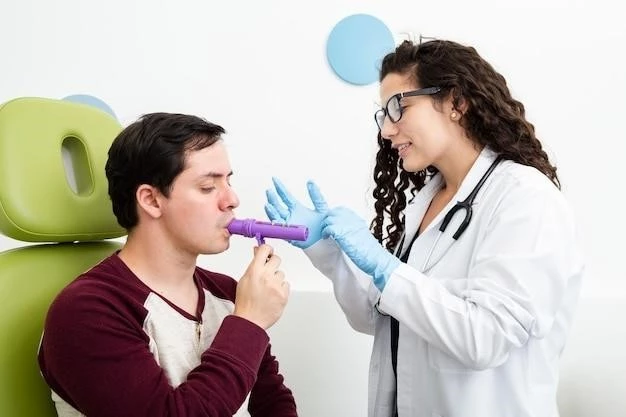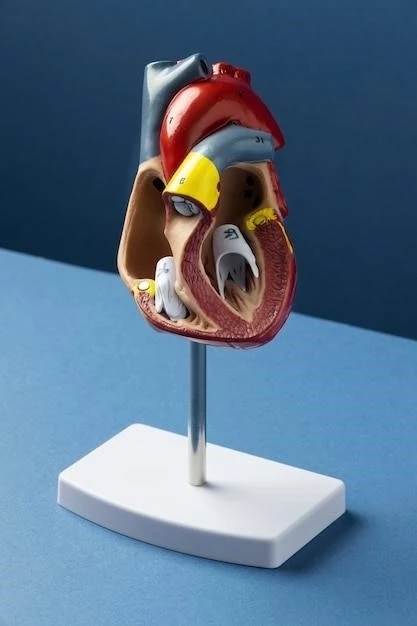Causes of Atrioventricular Septal Defect
Understanding the causes of atrioventricular septal defect is crucial in the
prevention and management of this congenital heart condition․
Genetic Factors
Genetic factors play a significant role in the development of atrioventricular septal defect, with certain genetic mutations or abnormalities contributing to the condition․ Understanding the genetic basis of this defect can help in genetic counseling and early intervention strategies․
Environmental Influences
Environmental factors, such as maternal health during pregnancy, exposure to certain toxins, or infections, may also contribute to the development of atrioventricular septal defect․ Identifying and minimizing these environmental influences can help reduce the risk of this congenital heart condition․

Symptoms of Atrioventricular Septal Defect
Recognizing the symptoms of atrioventricular septal defect is crucial for early diagnosis and intervention in individuals with this congenital heart condition․
Heart Murmur
One of the common symptoms of atrioventricular septal defect is the presence of a heart murmur, which can be detected during a physical examination․ Monitoring and further evaluation are essential to determine the severity and impact of the murmur on heart function․
Rapid Breathing
Rapid breathing, known as tachypnea, is another common symptom observed in individuals with atrioventricular septal defect․ Prompt medical attention is essential to evaluate the underlying cause of rapid breathing and address any potential respiratory complications associated with this condition․
Poor Weight Gain
Poor weight gain may be a noticeable symptom in infants with atrioventricular septal defect, impacting their overall growth and development․ Close monitoring of nutrition and growth, along with early intervention strategies, are essential to address and manage this aspect of the condition effectively․
Treatment Options for Atrioventricular Septal Defect
Various treatment options are available to manage atrioventricular septal defect and improve the quality of life for affected individuals․
Medications
Medications may be prescribed to manage symptoms, control heart function, and prevent complications in individuals with atrioventricular septal defect․ Close monitoring of medication effectiveness and potential side effects is essential for optimal treatment outcomes․
Surgical Procedures
Surgical intervention is often necessary to repair atrioventricular septal defects and restore normal heart function․ Procedures such as complete atrioventricular canal repair or patch closure are common surgical approaches used to treat this congenital heart condition effectively․
Monitoring and Follow-Up Care
Regular monitoring and follow-up care are essential components of managing atrioventricular septal defect․ Continued medical supervision, diagnostic tests, and follow-up appointments help assess treatment effectiveness, detect any complications early, and ensure ongoing support for individuals with this heart condition․
Surgical Procedures for Atrioventricular Septal Defect
Several surgical techniques are utilized to address atrioventricular septal defects, aiming to restore proper heart function․
Complete Atrioventricular Canal Repair
Complete atrioventricular canal repair is a surgical procedure commonly performed to correct atrioventricular septal defects, involving the reconstruction of the atrial and ventricular septa to optimize heart function and circulation․ This comprehensive repair aims to improve cardiac structure and function in affected individuals․
Patch Closure of the Atrioventricular Septal Defect
Patch closure is a surgical approach used to repair atrioventricular septal defects by sealing the communication between the atria and ventricles with a patch․ This procedure aims to correct the defect and improve overall heart function, reducing the risk of complications and enhancing patient outcomes․
Atrioventricular Septal Defect in Infants
Understanding and addressing atrioventricular septal defects in infants is crucial for optimal treatment outcomes․
Diagnosis in Newborns
Diagnosing atrioventricular septal defects in newborns involves comprehensive clinical evaluation, imaging tests, and potentially genetic screening to confirm the presence of the congenital heart condition․ Early and accurate diagnosis is essential for timely intervention and management of the defect in infants․
Treatment Challenges
The treatment of atrioventricular septal defects in infants presents unique challenges, including the need for specialized care, potential long-term management, and considerations for growth and development․ Addressing these challenges requires a multidisciplinary approach to ensure the best possible outcomes for affected infants․
Complications of Atrioventricular Septal Defect
Understanding and managing complications associated with atrioventricular septal defects is crucial for comprehensive care․
Pulmonary Hypertension
Pulmonary hypertension is a common complication of atrioventricular septal defect, leading to increased pressure in the blood vessels of the lungs․ Close monitoring and treatment are essential to manage this condition and prevent potential complications that can impact heart and lung function in individuals with atrioventricular septal defect․
Heart Failure
Heart failure is a serious complication that can arise in individuals with atrioventricular septal defect due to the strain on the heart․ Close monitoring, appropriate medical management, and timely interventions are essential to prevent and treat heart failure effectively, improving the overall prognosis and quality of life for affected individuals․
Prognosis of Atrioventricular Septal Defect
Evaluating the long-term outlook and quality of life for individuals with atrioventricular septal defect․
Long-Term Outlook
The long-term outlook for individuals with atrioventricular septal defect depends on various factors, including the extent of heart involvement, treatment received, and overall health management․ Regular follow-up care, lifestyle modifications, and adherence to medical recommendations are crucial for optimizing long-term outcomes and quality of life․
Quality of Life Considerations
Managing atrioventricular septal defect involves addressing quality of life considerations, including physical activity limitations, emotional well-being, and social support․ Tailored interventions, psychological support, and access to resources can enhance the quality of life for individuals living with atrioventricular septal defect․
Research Advancements in Atrioventricular Septal Defect
Exploring the latest research developments in understanding and treating atrioventricular septal defects․
Current Studies and Trials
Ongoing studies and clinical trials are investigating new approaches for the management and treatment of atrioventricular septal defects․ These research endeavors aim to enhance outcomes, refine surgical techniques, and improve the overall care for individuals with this congenital heart condition․
Innovative Therapies and Interventions
Advancements in innovative therapies and interventions are paving the way for more effective treatment strategies in individuals with atrioventricular septal defect․ Novel approaches, such as targeted medications or minimally invasive procedures, offer promising options to improve outcomes and quality of life for patients with this complex congenital heart condition․
